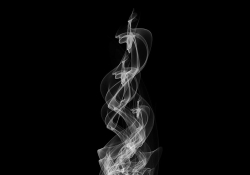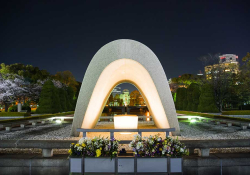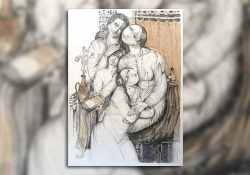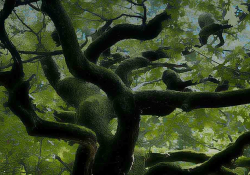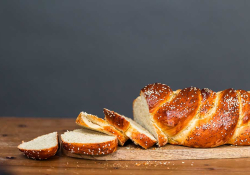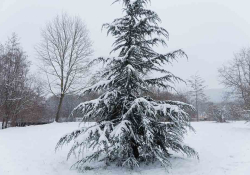Two Poems for Pascha
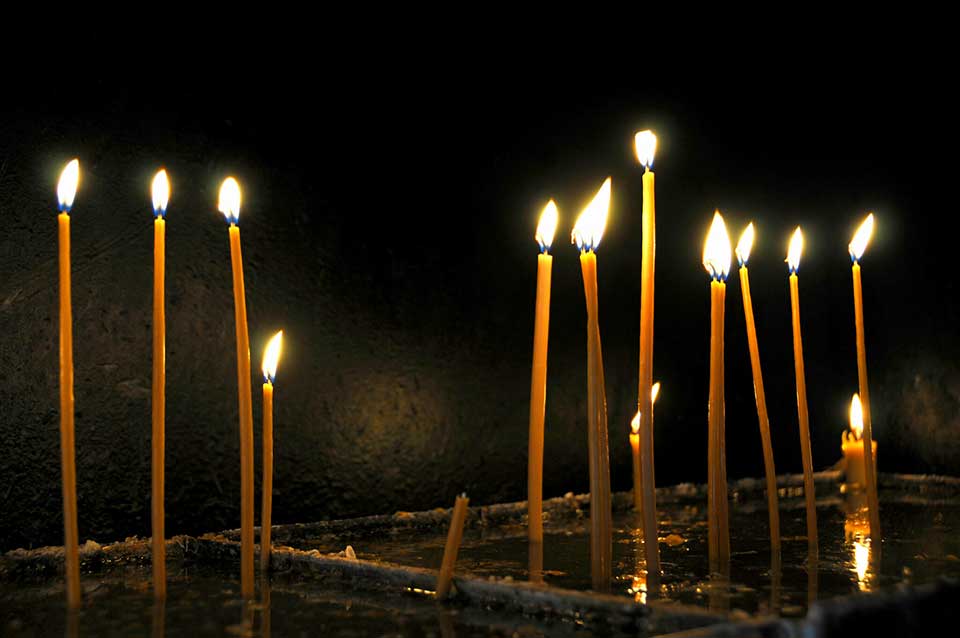
Bema
In Greek it means step. In church
it separates me from the nave, where the quiet
sit and wait. Behind the screen
the altar boys, age twelve, arrange
a crucifix between them. Each boy
in his golden threads with his own Christ
treads among us, carrying a gallery of icons
too large for a boy to hold. Outside
it’s Easter. We pace around the church three times.
The boys are growing tired. I can approach
one now. I ask him if it’s hard to bear
the solid cross. He says it’s hollow.
May I touch it? No, not today. It’s Holy Day. Maybe
when no one is looking.
It’s midnight now.
We must proclaim that Christ has risen
from the dead. We kiss each other once
on each cheek, side to side, responding that,
Indeed, He has.
It’s rote. I don’t know what it means
yet. They’re sounds. I’m young. They’re old,
old sounds. No one goes back inside.
We’re hungry for celebration: Christ
has risen from the dead. Give us our bread,
and all that. But the present
is inside with the priest, preaching. Stay,
he says, as hoards walk down the marble steps.
Stay and listen to more sermon. I obey. I can see
through the cracks in the screen, the boys are changing
back into their own clothes. I imagine
I could try that robe left hanging
on a hook beside the cross, behind the altar font.
I take a step sideways and enter the circle
of the forbidden room. One move and I know
where secrets are: a marble bowl
of water, bread bloated on a platter,
a palm-size house that burns oil. No one
sees me. The priest keeps speaking.
His voice comes to me
through the crucifix on the wall. I touch
the robe and the blessed Book. I am too small
to understand. The priest goes on.
He knows every word. He
understands. He’s a good man. Saving souls
and all that. No one is there to know it. I pick up
the cross. It’s too big. I call out, God. I’m here.
My words linger like frankincense
in the unholy air.
Incomplete Art
My father displayed his new painting with a note:
“I don’t know where I am going with her hands.”
And where should he go with her hands—
now a blur to signify the question of hands.
In the Sistine Chapel, among the angels, we waited
to be named by Adam’s outstretched hand.
Michelangelo painted the birth of man. Eve
took shelter behind God’s mute hand.
A formality of postures, I nod. I understand
the veined map of a body textured by hand.
One touch will hush, decompose the remorse
of where one might go, by the sleight of what hand.
One touch will crosshatch, unheart
hope, and die by the brawn of one hand.
Spoken for in the turpentine temples of love,
I was sculpted and cored by the stroke of a hand.
Eve said nothing, I said. Nothing I say
like law. Absence is an art of the hand.
The artist creates, but I’ve tired of ends.
In worship, wisdom has folded her hands.

